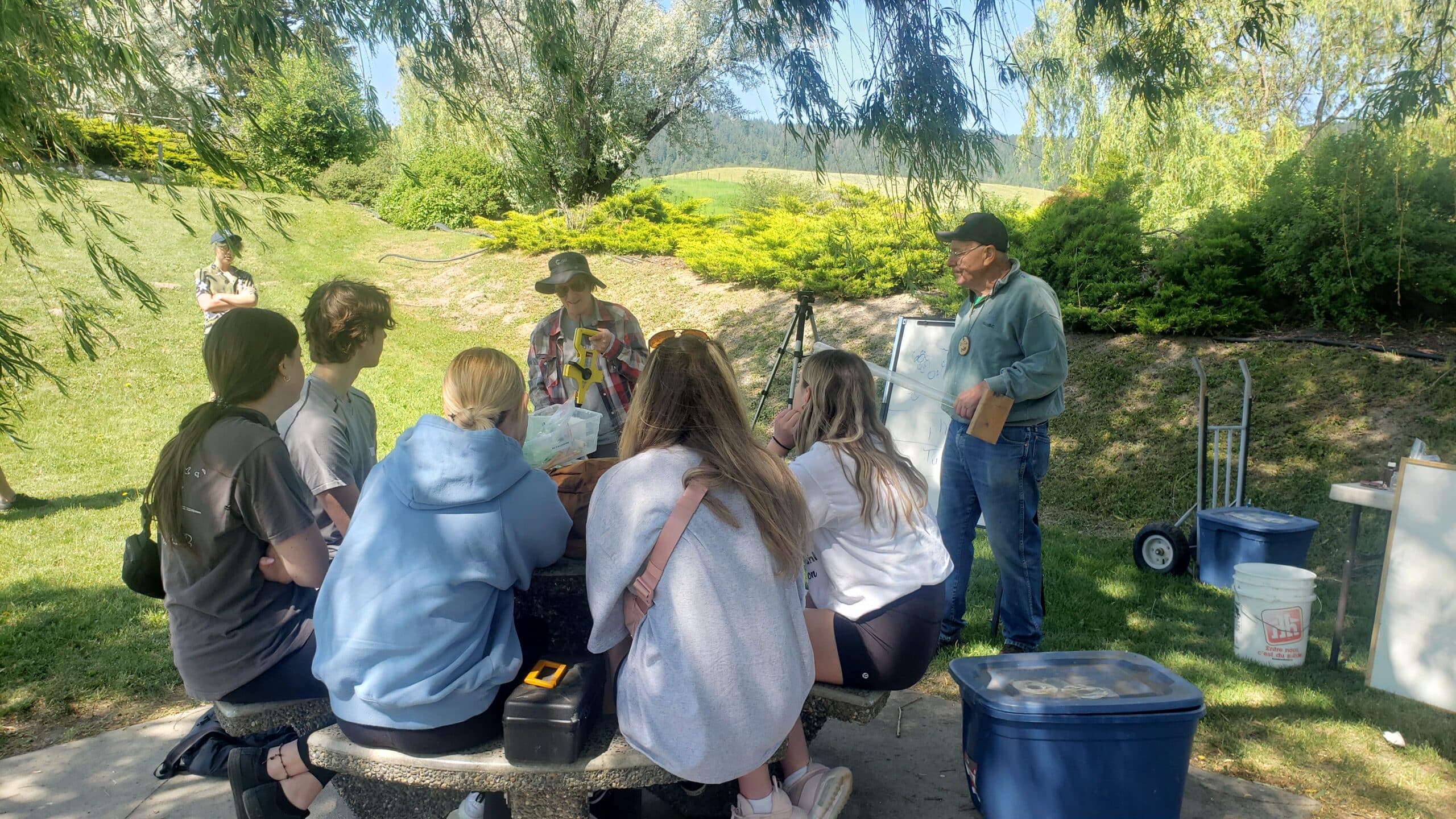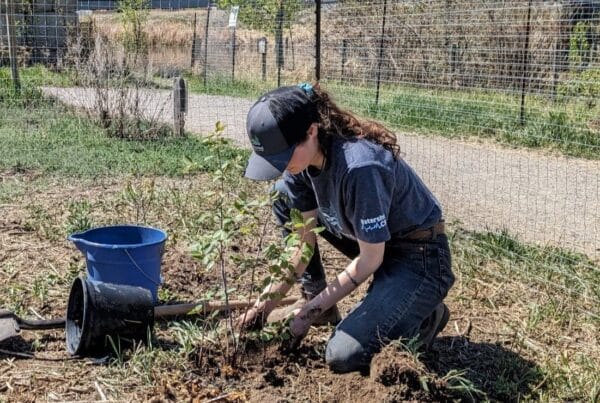By Lisa Houle | August 25, 2023
Teachers are some of the most influential figures in our lives. They can encourage our unique talents and leave impressions that shape us as individuals. Just in time for the start of the new school year, we are pumped to introduce a passionate invasive species educator who has been connecting kids with nature for years.
Kim Fulton is a former public school teacher and principal now living on a farm in Spallumcheen near Armstrong, BC. He is currently an environmental educator and WildBC Facilitator with the Habitat Conservation Trust Foundation, working to help protect and restore native species. Raised in the Okanagan, Kim comes from a long line of educators. His parents were teachers, and Clarence Fulton Secondary in Vernon, BC is named after his grandfather, a former principal for several schools in the area. With a master’s degree focusing on Environmental Education and a keen interest in biology, it was natural for Kim to teach his students about being environmentally conscious – like his parents taught him.
“It is important to teach students about invasive species so that they will be vigilant and help in early detection. Maybe more important, is giving children a feeling of hope and agency in being able to do something positive for the environment,” said Kim, noting that planting trees is one of his favourite projects. “This year, every student and staff in School District 83 planted a seedling. These 7,600 trees will provide oxygen, shade, and hope for the future.”
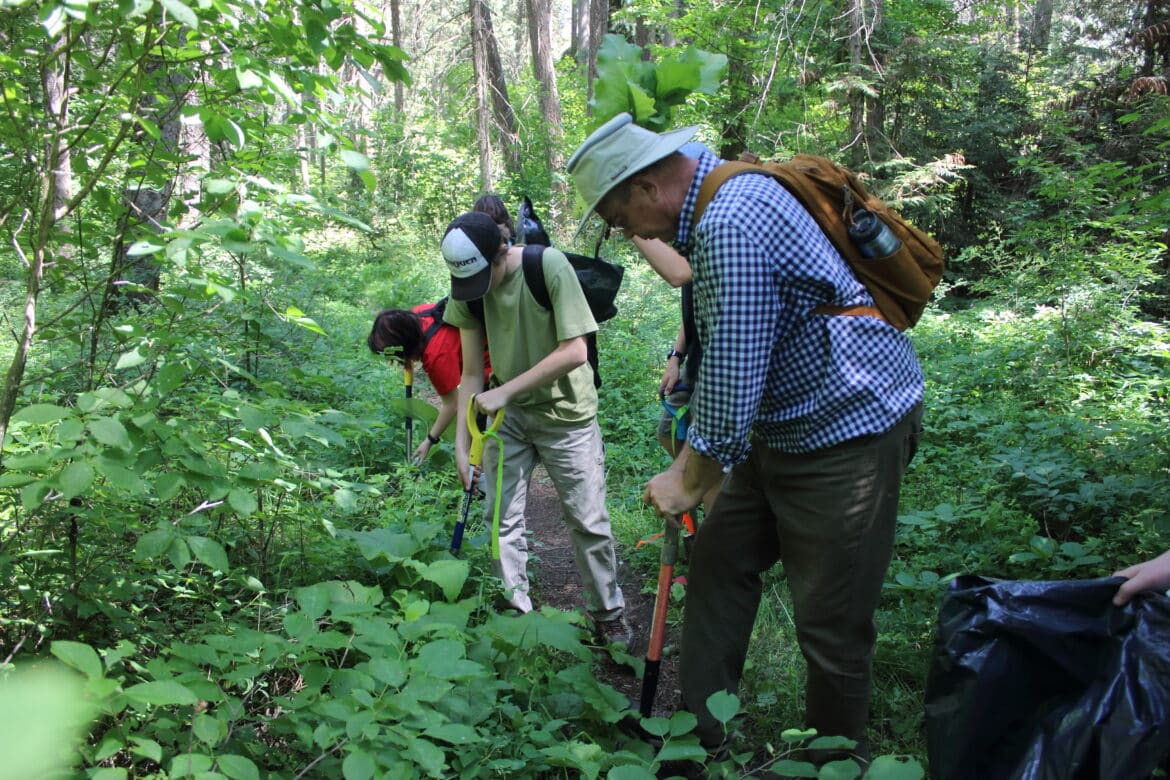
Kim’s nicknames are ‘Dr. Fish’ and ‘the Lorax.’ In the 1990s, Kim was involved with answering questions on an interactive project at Simon Fraser University called ‘Ask an Expert.’ Kids and teachers from all over B.C. would ask questions and experts would answer them. Kim’s extensive research on salmon gave him this expert status as Dr. Fish.
“I was deeply involved in the Salmonid Enhancement Program and Salmonids in the Classroom where we pioneered in-class incubators that are still in use today and it ‘hooks’ a lot of kids in environmental work,” he said. “We discovered that releasing fry into unhealthy streams was very gut- wrenching and moved into more of a focus on habitat, which of course means ‘trees.’ That’s where the Lorax persona evolved [a reference to Dr. Seuss’s character who guards his forest of Truffula trees]. And of course, the novelty of a guy dressed up as the Lorax helps create memorable experiences for kids and motivates them.”
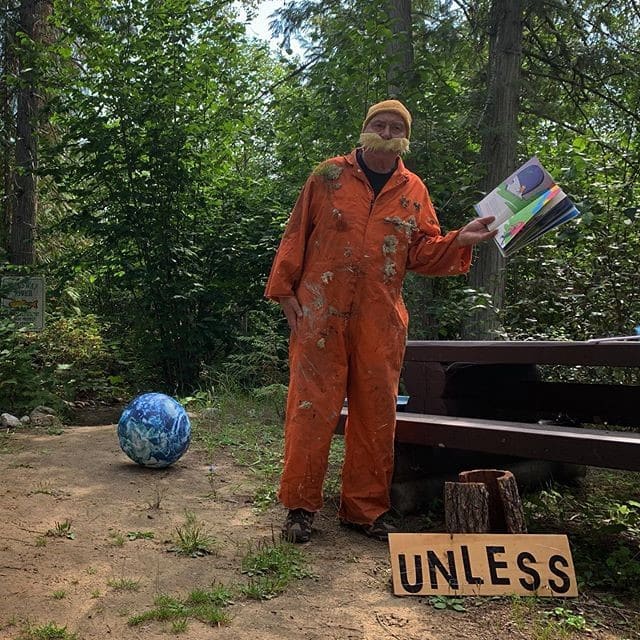
Kim knows what it’s like to witness kids connect with nature.
“Recently I went out with a group of about 20 high school biology students, digging burdock along a trail in a local park. I didn’t hear one complaint about plentiful mosquitos, hot weather, or hard work. I never saw anyone check their cell phone. They got right into it,” he said.
Kim’s role in education has always brought him back to invasive species.
“I had a contract with the Freshwater Fisheries Association to do educational materials and on the ground teaching with schools to address the threat of spiny ray fish invading our lakes in the Okanagan/Shuswap area,” said Kim. “In that process I learned a lot about invasive species of all stripes. I have seen huge changes and have seen the negative effects on habitat brought about by invasive species. They are just doing what all species try to do – reproduce and multiply.”
Stephanie Weinstein, ISCBC Education Lead, is grateful for leaders like Kim who take action in their communities.
“Enlisting student groups can help ensure project success on all levels, including controlling invasive species, increasing community engagement, and by creating authentic learning experiences connected to school curriculum requirements,” she said. “Kim is a career teacher and environmental educator who works with students, and he also trains teachers. He is a tireless advocate for nature and an inspiration to all.”
Kim has a number of projects on the go. One he hopes will get off the ground involves tackling invasive species at a lake in the Okanagan, the entire circumference of which he says is overrun with invasive Purple loosestrife (Lythrum salicaria).
“The lake is habitat for a wide variety of critters with migrating and resident birds as obvious inhabitants. It is a popular birding spot. My dad and I used to hunt there. I could see the negative impacts of Purple loosestrife and wondered why it appears that nothing was being done to address the problem. So began a journey for me,” said Kim, noting that the work will only be completed if the proper permits are in place. “As an educator, I wanted to involve high school students and community groups in citizen science action to help address the problem. My plan for citizen science is not to try to dig up the loosestrife but to ‘dead head’ from boats to prevent millions of seeds from spreading.”
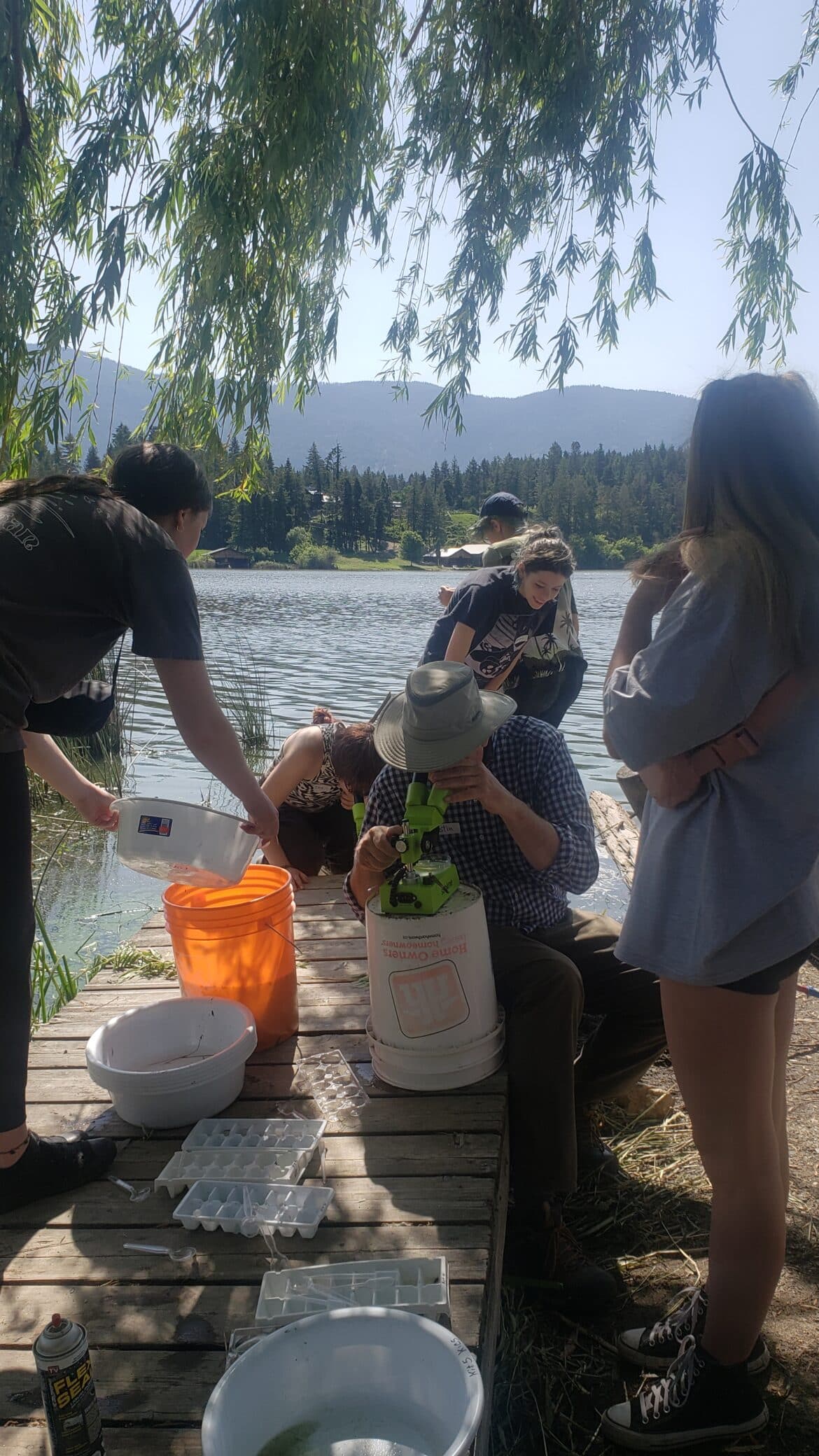
Kim is in the process of navigating complex permissions for this project, hoping it will come to fruition. In the meantime, he is aiding the Ministry of Forests, volunteering to monitor beetles that have been introduced to the area as biocontrol to slow loosestrife down.
He shares his best advice for someone who wants to make even a small difference with invasive species:
“Educate yourself and keep your eyes open for small infestations. Report them and, if it is appropriate, organize a weed pull or just pull them yourself and discard them appropriately. You can make a difference.”
With students heading back to school soon, Kim’s work serves as a good reminder that now is a great time for teachers to think about upcoming projects for the school year. ISCBC’s free Invasive-Wise Education program offers virtual school presentations, teacher professional development, and curriculum-linked resources.
“If teachers are looking for more support in the classroom/schoolyard to build on their outdoor learning, ISCBC can provide lesson plans and virtual presentations in French and English,” said Stephanie. “This is just a small part of what ISCBC’s Invasive-Wise education team offers to schools. Our resources are completely free – teachers just sign up to get access to our services.”
Lisa is a Communications and Outreach Coordinator at ISCBC. She values a diverse environment and connecting with others about environmental protection. In her spare time Lisa enjoys spending time at the ocean and beach combing for sea glass. You can reach Lisa at lhoule@bcinvasives.ca
Share


